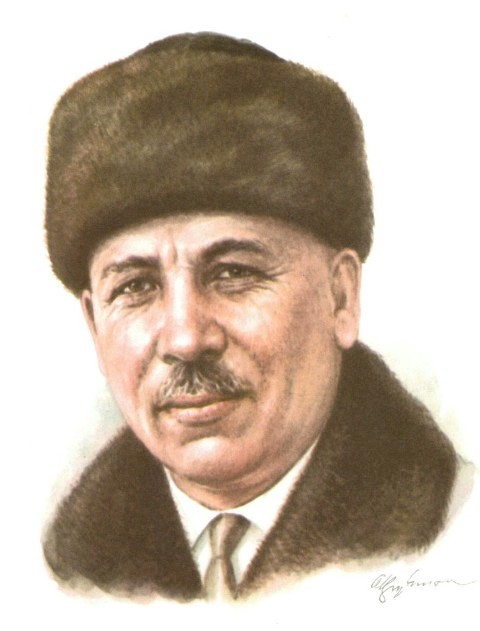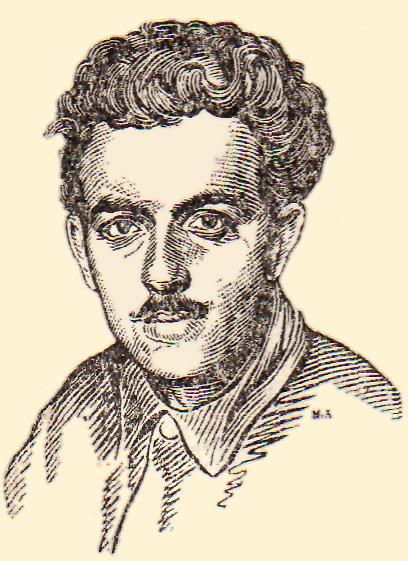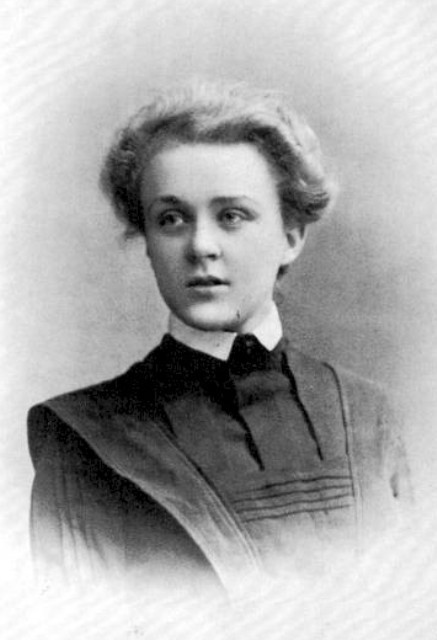Иван Николаевич Бездомный
Русский > Персонажи > Московские персонажи > Иван Николаевич Бездомный
Мы продолжаем напряженно работать, чтобы улучшить наш сайт и перевести его на другие языки. Русская версия этой страницы еще не совсем готова. Поэтому мы представляем здесь пока английскую версию. Мы благодарим вас за понимание.
Context
Ivan Nikolayevich Ponyryov is a 23 years old poet who publishes under the pseudonym Bezdomny, which means the Homeless in Russian. The novel starts and ends with him, and he appears frequently between times.
At the beginning he meets Mikhaïl Alexandrovich Berlioz at Patriarch's Ponds. They are discussing the historical truth of Jesus when Woland interrupts their conversation and tells them the story of the crucifixion as if he had been present himself. When Berlioz has his accident exactly as Woland had predicted, Ivan chases the devil and his retinue throughout the city to the Moscow river where he dives into. Sopping wet and in his underwear he runs to Gribodeov, the headquarter of the writers' association. He's arrested and sent to the hospital of doctor Stravinsky.
His neighbour in the hospital appears to be the master, who tells him that he must have met the devil. At the end of the story, Ivan becomes historian - he renounces poetry, but continues having visions each time at full moon.
Prototypes
In an earlier version of the book, the young poet was called Bezrodny, which means the Lonely. Later Bulgakov tried other names such as Ivan Petrovich Teshkin with the pseudonyms Besprizorn, the Unprotected, Ivan Palashov with the pseudonym Bezbrezhni, the Boundless, and many others. Indeed, many of the so-called proletarian writers used such pseudonyms. Perhaps the best known is Aleksey Maksimovich Peshkov (1868-1936) who called himself Maksim Gorky or the Bitter. Other examples are Golodny, the Hungry, Besposhchadny, the Wreckless or Pribludny, the Lost.
Some sources mention that, when he worked in the Gudok magazine in the early 1920s, Bulgakov, or one of his colleagues, occasionally used the pseudonym Bezdomny himself, but to date I have not seen any examples.
Demyan Bedny
The pseudonym Bezdomny or the Homeless, is also reminiscent of the name of Demyan Bedny or the Poor, who in real life was called Efim Alexandrovich Pridvorov (1883-1945). Pridvorov wrote antireligious works in the 1920s, such as The New Testament without Shortcomings of the Evangelist Demyan. In 1925 Bulgakov made an annotation in the diaries that later were found in the KGB-archives: «He presents Jesus Christs as a cheat and a swindler... there are no words for such crime». It's quite possible that Bulgakov got the idea of writing The Master and Margarita after having read Bedny's work.
Alexander Ilych Bezymensky
But the Homelessalso reminds ofAlexander Ilych Bezymensky (1898-1973). Bezymensky means the Nameless. However, the name Bezymensky was not a pseudonym. But he was so convinced of the proletarian idea that he said: «If Bezymensky had not been my birth name, I would have chosen him as a pseudonym». In 1929, Bezymensky had written a play entitled Выстрел [Vystrel] or The Shot, which was partly a parody of Bulgakov's The Days of the Turbins. If Bezymensky was the prototype of Bezdomny, it could explain the following excerpt from the novel. Ivan is in room 117, and a mysterious visitor enters the room...
|
- - - - - - - - - |
«Your profession?» «Poet,» Ivan confessed, reluctantly for some reason. The visitor became upset. «Ah, just my luck!» he exclaimed, but at once reconsidered, apologized, and asked: «And what is your name?» «Bezdomny...» «Oh-oh...» the guest said, wincing. «What, you mean you dislike my poetry?» Ivan asked with curiosity. «I dislike it terribly.» «And what have you read.» «I've never read any of your poetry!» the visitor exclaimed nervously. |
Another reason why some experts believe that Bezymensky would be the prototype of Ivan is the quarrel between Riukhin and Ivan Bezdomny in the novel. Since Riukhin is a parody of Vladimir Vladimirovich Mayakovsky (1893-1930), this quarrel might well be a parody of the always changing relationship between Mayakovsky and Bezymensky. Initially, Mayakovsky was Bezymensky's idol, but the feeling was not mutual. Mayakovsky compared Bezymensky's work with «coffee made of carrots». By «carrots» he meant «chicory», a product that was often used as a substitute for coffee. In other words: Mayakovsky considered Bezymensky as ersatz, not as a real literary personality.
In The Hoof of the Engineer, an earlier version of The Master and Margarita from 1929, Bulgakov wrote in the fourth chapter that the writer's house Griboedov - which he then conceived with the «wild name» Hut of Griboedov - was located in Moscow «opposite the monument for the famous poet Alexander Ivanovich Zhitomirski, who was poisoned in 1933 with a sturgeon». The name of this so-called famous poet is derived from Zhjitomir, the birthplace of Bezymenski.
This fourth chapter from the first and second version of the novel was entitled Мания фурибунда [Mania furibunda] or Raving madness. On May 8, 1929 Bulgakov had offered this text under the pseudonym K. Tugay to the magazine Nedra, which had published his novel Diaboliade five years earlier, but his application got never any reply.
Ivanushka
Ivan is also a folk Russian character often appearing in jokes: Иванушка Дурачок (Ivanushka Durashok) or Ivan the Fool, who may be dumb, but who's clumsiness makes him very popular in Russia. On various places in the novel Ivan is called Ivanushka.
The character of Ivan Bezdomny has a very clear evolution in The Master and Margarita. At the Partiarch pond, he is the rather stupid Ivanushka who does not even know who or what Immanuel Kant was - «They ought to take this Kant and give him a three-year stretch in Solovki», he plumped quite unexpectedly. That statement might well have been inspired by something which Nadezhda Afanasievna Bulgakova (1893-1971), a sister of the author, had told on December 11, 1933. A distant relative of her husband Andrey Mikhailovich Zemsky (1892-1946), a communist, would have said that Bulgakov should be sent to the Dnieprostroy for three months and that they should not give him anything to eat, so that he could become «reborn». To which Bulgakov replied: «There is another way: to give him herring, but without drinking».
Later, Ivan would become quieter and wiser. The turning point was Ivan Splits in Two, chapter 11, in which he began to evolve and finally ended up as a professor and researcher at the Institute of History and Philosophy.
Поместить эту страницу |
Московские персонажи
- Аннушка
- Арчибальд Арчибальдович
- Жорж Бенгальский
- Михаил Александрович Берлиоз
- Иван Николаевич Бездомный
- Никанор Иванович Босой
- Автор скетчей Хустов
- Латунский, Ариман и Лаврович
- Степан Богданович Лиходеев
- Савва Потапович Куролесов
- Профессор Кузьмин
- Барон Майгель
- Алоизий Могарыч
- Максимилиан Андреевич Поплавский
- Александр Рюхин
- Аркадий Аполлонович Семплеяров
- Андрей Фокич Соков
- Доктор Стравинский
- Тузбубен
- Писателей в Грибоедове
- Другие персонажи в Москве
Иллюстрации
Ваш гид по роману

В этом разделе даются пояснения к встречающим-ся в романе понятиям, име-нам людей, местам дейст-вия, цитатам и выражениям в рамках политического, социального, экономичес-кого и культурного контекста, в котором создавался роман.



